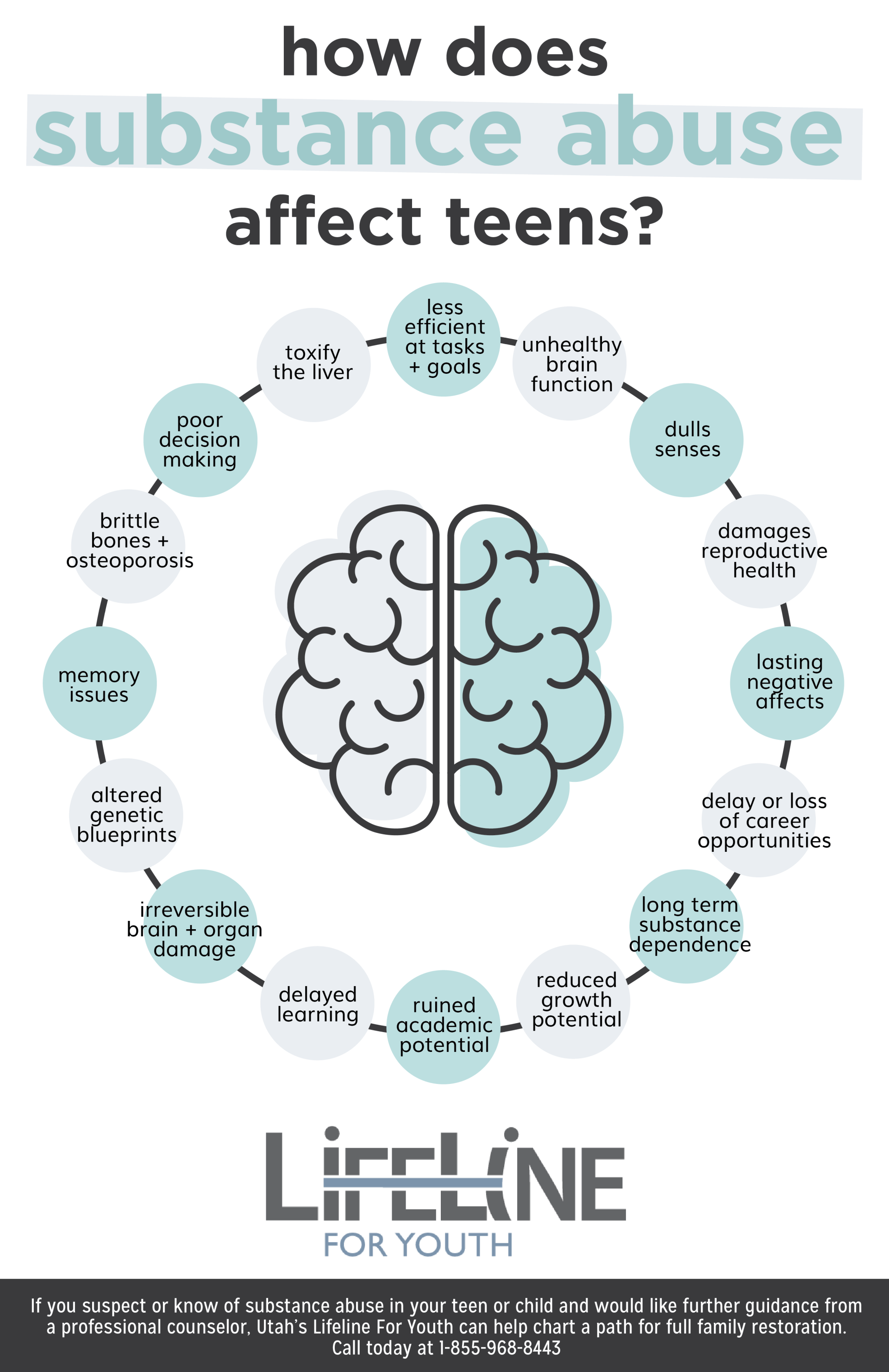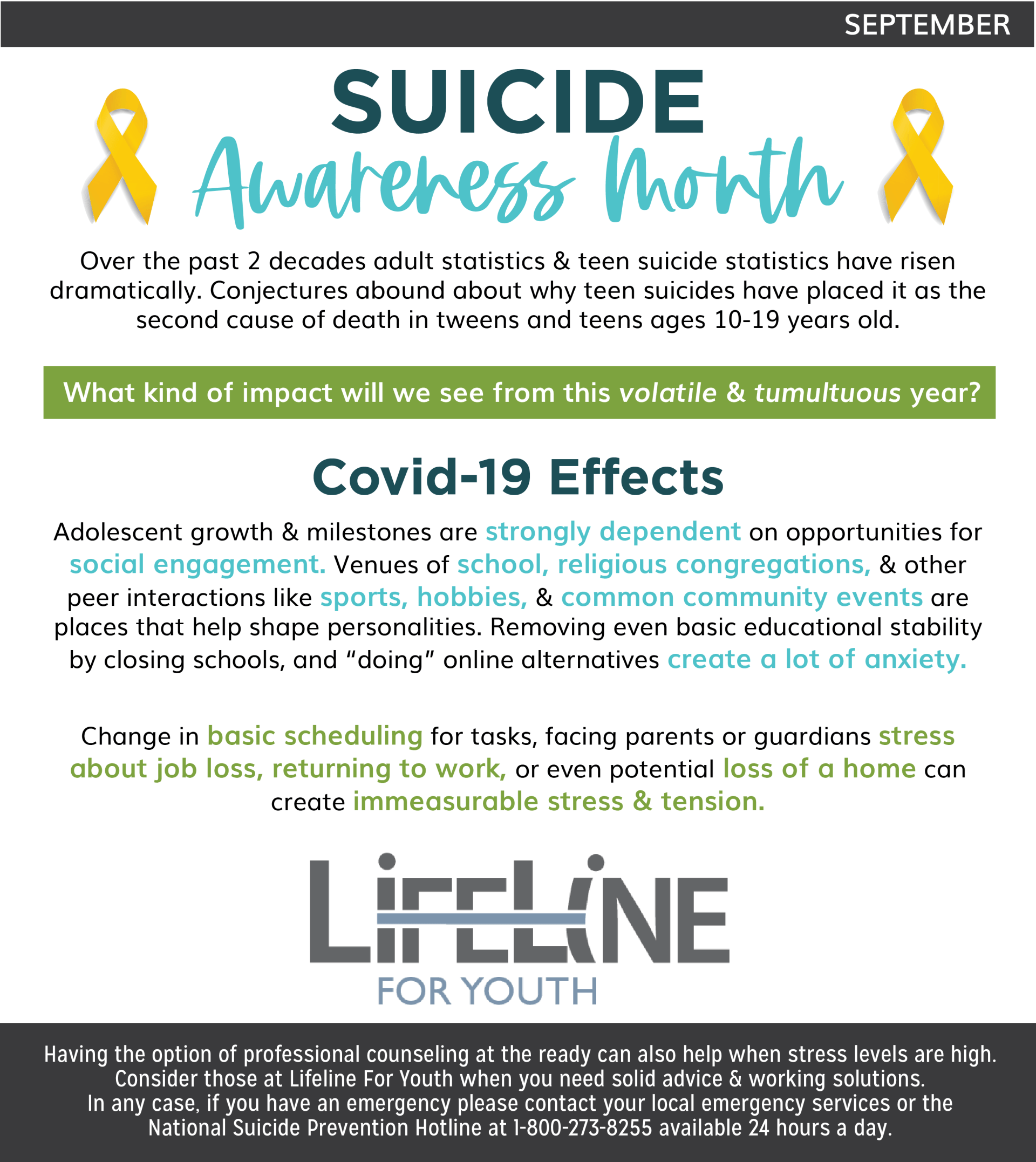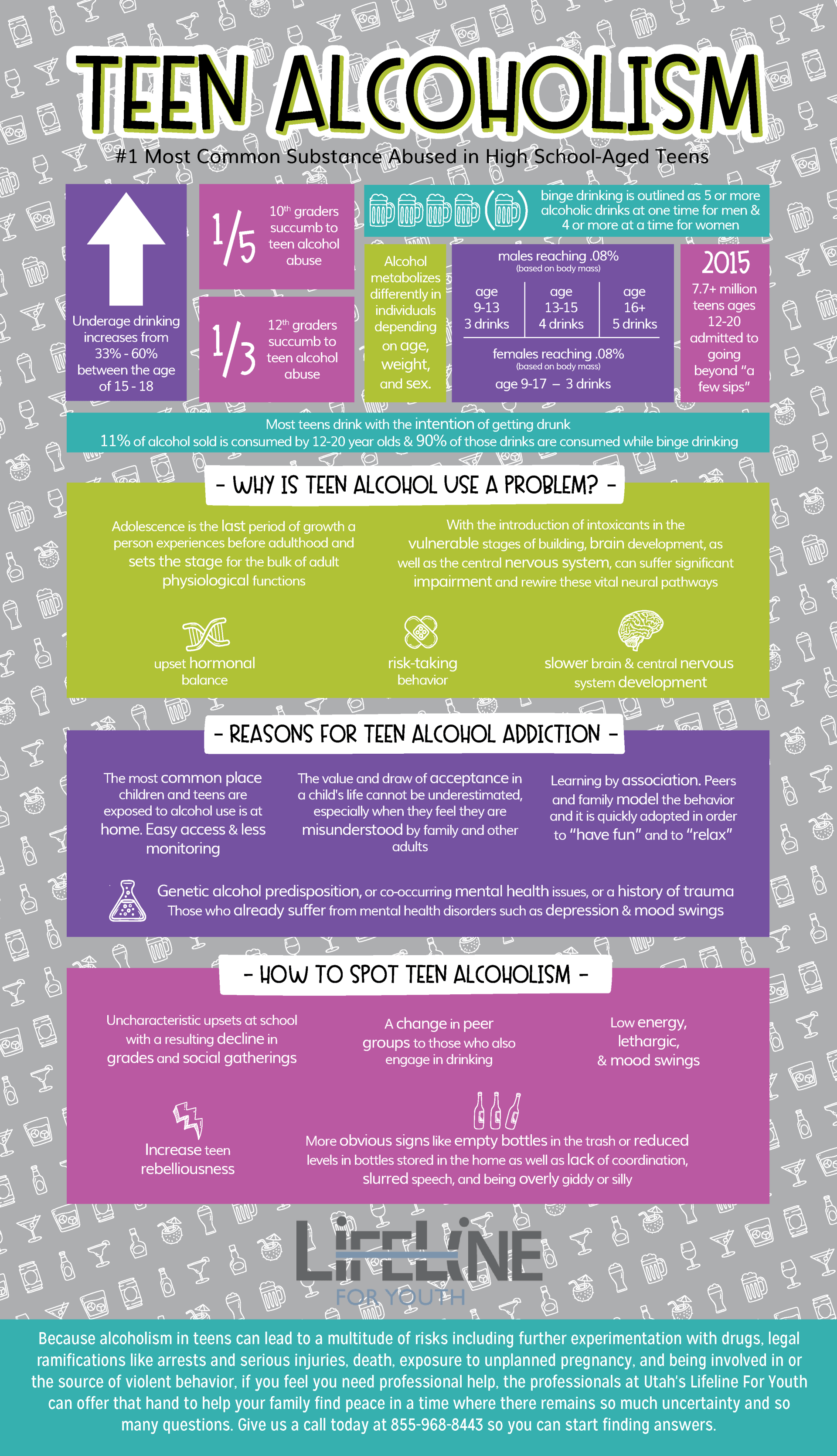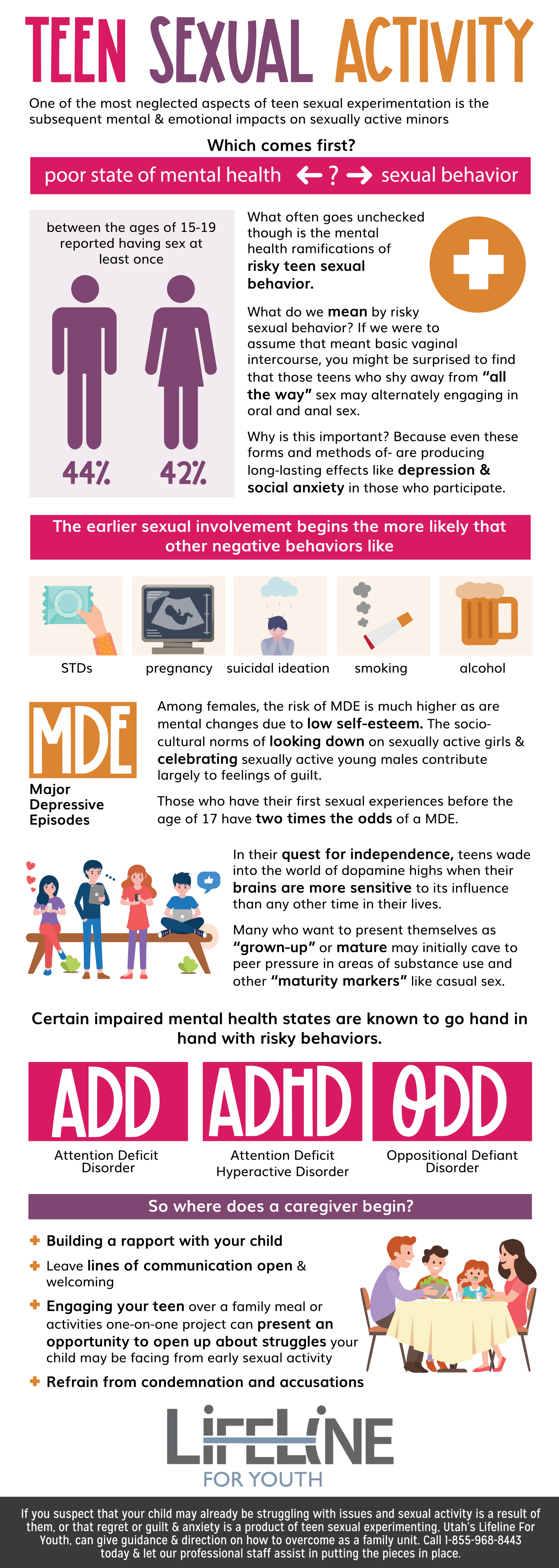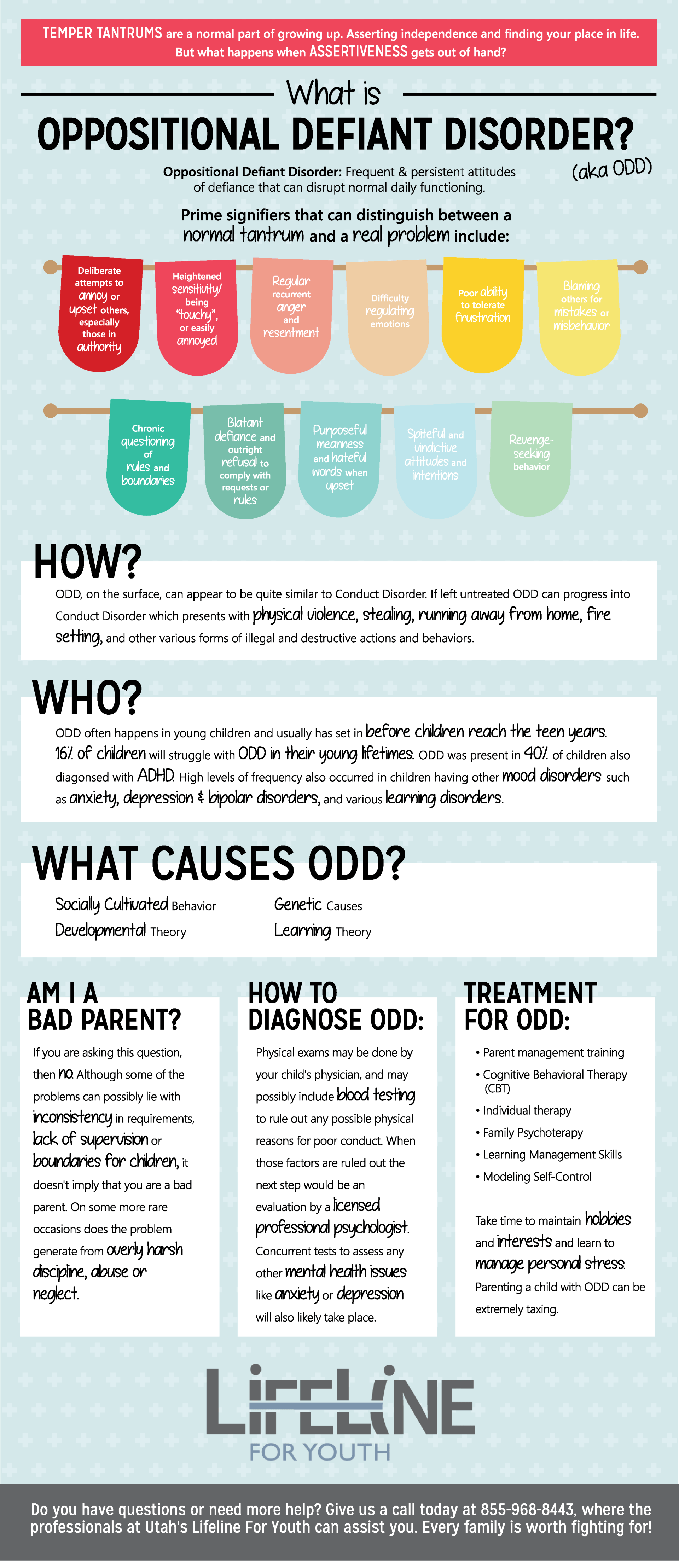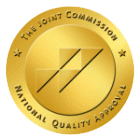Whether you call it the birds and the bees or some other term, teen sexual activity is a big deal.
With all the studies that have been done about teen sex, its reasons, its outcomes, and its prevention, we’ve learned quite a bit over the last ten to fifteen years.
One of the most neglected aspects of
teen sexual experimentation is the subsequent mental and emotional impacts on sexually active minors. Let's take a closer look.
In most of the studies conducted over the past decade, we see a profound correlation between sexual activity in teens and mental health issues. The one factor that remains unanswered is which comes first, the poor state of mental health or the
sexual behavior in adolescents?
Although Utah doesn’t legally allow researchers to ask youth about their sexual behavior, other statistics surrounding intimate relations in teens
is quite telling, as well as general US statistics. Beyond Utah’s borders, the CDC noted in one study that between the ages of 15-19, 44% and 42% of males and females respectively reported having sex at least once. The requests for
contraception, STD
and STI tests, and
pregnancy tests are still present in Utah just the same.
What often goes unchecked though is the mental health ramifications of
risky teen sexual behavior.
What do we mean by risky sexual behavior? If we were to assume that meant basic
vaginal intercourse, you might be surprised to find that those teens who shy away from “all the way” sex may alternately engaging in
oral and anal sex. Why is this important? Because even these forms and methods of- are producing long-lasting effects like
depression
and
social anxiety in those who participate.
Strong links between risk behaviors and depressive symptoms
happen in both females and males of varied ages. The earlier sexual involvement begins the more likely that other negative behaviors like STDs,
pregnancy, and
suicidal ideation, and other
high-risk behaviors like smoking and
excessive alcohol consumption will follow.
Among females, the risk of Major Depressive Episodes (MDE) is much higher as are mental changes due to
low self-esteem. The socio-cultural norms of looking down on
sexually active girls and celebrating
sexually active young males contribute largely to feelings of guilt. Those who have their
first sexual experiences
before the age of 17 have two times the odds of a Major Depressive Episode.
But is there evidence of mental health concerns before the beginning of sexual engagement?
It's difficult to say, and ridiculous to suggest that all
initiations into sexual behaviors
are a result of mental health instability. We’re talking about teens here, and not only that but teens steeped in a culture permeated with sexuality.
So whether the chicken came before the egg or not, there is some pretty firm evidence that those willing to engage in the teen hook-up culture may already have some issues that could be going unaddressed.
In their quest for independence, teens wade into the world of
dopamine highs when their brains are more sensitive to its influence than any other time in their lives. Many who want to present themselves as “grown-up” or mature may initially cave to
peer pressure in areas of
substance use and other “maturity markers” like
casual sex.
Because the risk assessment ability in the teen brain is still under construction (with quite a ways to go), teens may engage in something called “risk clustering” or
multiple risk behaviors. One study notes this saying “...the coexistence of
drugs,
risky sex, mental health problems remains a consistent observation in epidemiological studies.”
Translation? Certain impaired mental health states are known to go hand in hand with risky behaviors. Those who have problems with
ADD (Attention Deficit Disorder),
ADHD (Attention Deficit Hyperactive Disorder), and ODD
(Oppositional Defiant Disorder) are more susceptible to risky sexual behaviors.
Another study on young adult sexuality found that
hyper-sexuality grows within the sector that struggles with substance dependence, are on the
schizophrenic spectrum, have
depressive problems
like
dysthymic disorder (chronic, mild depression), and
antisocial disorders. Substance dependence like
cigarettes,
marijuana,
alcohol, crack, cocaine, and
methamphetamine prove to be significant predictors of higher rates of intimate relationships in minors as well as
loneliness, depression, and social anxiety.
Teens with depression
may find a higher rate of involvement with
casual teen sex. Even though depression dulls
hormonal drives there can be two contraindicated outcomes. The first is that the youth is self-medicating as a diversion from other areas causing depression, to relieve tension or
stress, or to try to console themselves with
affection seeking behaviors. Those with
low self-esteem are more apt to use sex as an act of validation via intimate contact.
The second reason a teen experiencing depression would seek out
sexual encounters would be for a lack of care about consequences. Those experiencing suicidal ideation or other
self-destructive behaviors
often have no care about life or the chances of acquiring an STD or STI.
So where does a caregiver begin?
Puberty is difficult enough to navigate, let alone teen sexual and mental health. Underlying issues causing, or stemming from the lack of teen abstinence
can be a parent's worst nightmare.
As often recommended by Lifeline For Youth, building a rapport with your child and leaving lines of communication open and welcoming is a good first step. Engaging your teen over a family meal or activities, or even a one-on-one project can present an opportunity to open up about struggles your child may be facing from early sexual activity.
Refraining from condemnation and accusations is always the best policy to keep trust lines open. Guiding your child through difficult topics may make you sweat but can build a relationship that lasts, and now is always the best time to start.
If you suspect that your child may already be struggling with issues and sexual activity is a result of them, or that regret
or
guilt and anxiety is a product of
teen sexual experimenting,
Utah’s Lifeline For Youth, can give guidance and direction on how to overcome as a family unit. Call today and let our professional staff assist in putting the pieces in place.
